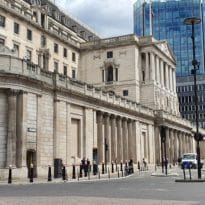Wage increases are detracting from a deteriorating jobs market, experts warn, as the latest job figures show the number of people unemployed is on the rise.
According to official figures by the Office for National Statistics, growth in pay, excluding bonuses, was 6% in the three months to February 2024, compared with a year earlier. In real terms, taking into account the impact of inflation, annual regular pay rose by 1.9%, the highest rate in almost two and a half years.
However, the figures also showed a rise in the UK’s employment rate to 4.2% in December through to February. The UK economic inactivity rate for those aged 16 to 64 years was 22.2%, above estimates of a year ago and up in the last quarter, the ONS said. At the same time, the estimated number of vacancies in the UK fell by 13,000 to 916,000 in January to March 2024, but was still above pre-pandemic levels.
Danni Hewson, head of financial analysis at AJ Bell, said: “For months we’ve been watching cracks begin to form in the UK jobs market as the post pandemic boom faded and the cost-of-living crisis forced businesses to retrench.
“Vacancy numbers have fallen again and again, and though they’re still above where they were before Covid lockdowns, the fact that unemployment has also been rising suggests a huge disconnect between the jobs available and workers free to fill them. The skills gap is nothing new and there never has been a quick fix, but with economic inactivity also surging over 22% it is a problem that’s becoming increasingly important.”
Hewson said the UK economy would suffer if businesses are held back because of a lack of workers to expand and fulfil their potential, which will place growing pressure on the public purse.
Hewson continued: “There have been questions asked about how much we can rely on ONS jobs figures, and they are always backwards looking. But when you consider the latest trading updates from recruiters PageGroup and Robert Walters you can see a clear picture developing. Recession might be short lived, but employers have had their confidence shaken and with the cost of borrowing so high many will have put off expansion plans until they can see past the current volatility.
“Price pressures have been acute, and wages have played a big part, with the UK workforce enjoying its biggest pay rise in almost two and a half years.”
Sarah Coles, head of personal finances at Hargreaves Lansdown, echoed the sentiment.
“From a personal perspective we can draw some comfort from the fact wages are rising faster than inflation, but we can’t ignore the fact that the overall employment picture is deteriorating. Over the previous quarter, and the past year, unemployment, redundancy and inactivity rates rose, while employment and vacancies dropped. These aren’t huge movements, but they’re all in the wrong direction.
“Economists call this a loosening of the labour market. While we’re a long way from facing a baggy future, the days where the labour market was tighter than a pair of jeans on a big night out seem to be drawing to a close. The Office for Budget Responsibility has been predicting a rise in unemployment, and this seems to be materialising. If this comes to pass, your emergency savings could be even more of a lifeline.”
Experts said attention will now turn to the Bank of England, which has faced increasing pressure for a long-awaited interest rate cut as inflation eases. However, the central bank has indicated that it would like to see wage growth slowing before announcing a cut.
Hewson said: “The big question for us all is whether the cool wind blowing through the labour market will be enough to persuade MPC members that the time has come to cut interest rates. Looking at market expectation, there’s certainly a growing hope that a June cut might once again be back on the table, even if the US Fed is a step or two behind.”





























